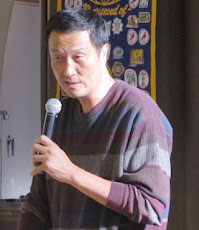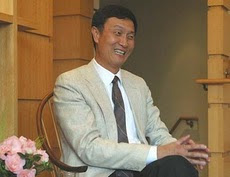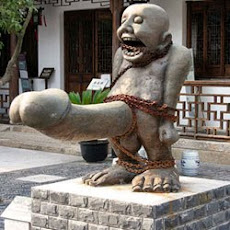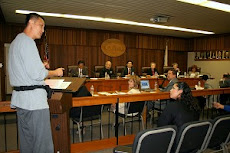 陈凯博客: www.kaichenblog.blogspot.com American Universities Infected by Foreign Spies Detected by FBI 中国间谍充斥美国校园 Sunday, 08 Apr 2012 07:39 PM Michigan State University President Lou Anna K. Simon contacted the Central Intelligence Agency in late 2009 with an urgent question. The school’s campus in Dubai needed a bailout and an unlikely savior had stepped forward: a Dubai-based company that offered to provide money and students. Simon was tempted. She also worried that the company, which had investors from Iran and wanted to recruit students from there, might be a front for the Iranian government, she said. If so, an agreement could violate federal trade sanctions and invite enemy spies. The CIA couldn’t confirm that the company wasn’t an arm of Iran’s government. Simon rejected the offer and shut down undergraduate programs in Dubai, at a loss of $3.7 million. Hearkening back to Cold War anxieties, growing signs of spying on U.S. universities are alarming national security officials. As schools become more global in their locations and student populations, their culture of openness and international collaboration makes them increasingly vulnerable to theft of research conducted for the government and industry. “We have intelligence and cases indicating that U.S. universities are indeed a target of foreign intelligence services,” Frank Figliuzzi, Federal Bureau of Investigation assistant director for counterintelligence, said in a February interview in the bureau’s Washington headquarters. ‘Academic Solicitation’ While overshadowed by espionage against corporations, efforts by foreign countries to penetrate universities have increased in the past five years, Figliuzzi said. The FBI and academia, which have often been at loggerheads, are working together to combat the threat, he said. Attempts by countries in East Asia, including China, to obtain classified or proprietary information by “academic solicitation,” such as requests to review academic papers or study with professors, jumped eightfold in 2010 from a year earlier, according to a 2011 U.S. Defense Department report. Such approaches from the Middle East doubled, it said. “Placing academics at U.S. research institutions under the guise of legitimate research offers access to developing U.S. technologies and cutting-edge research” in such areas as information systems, lasers, aeronautics and underwater robots, the report said. World-Class Talent Welcoming world-class talent to American universities helps the U.S. sustain global supremacy in science and technology, said University of Maryland President Wallace Loh. He chairs the U.S. Department of Homeland Security’s academic advisory council, which held its first meeting March 20 and is expected to address such topics as federal tracking of international students. Foreign countries “can never become competitive by stealing,” he said. “Once you exhaust that technology, you have to start developing the next generation.” Foreigners on temporary visas made up 46 percent of science and engineering graduate students at Georgia Institute of Technology and Michigan State and 41 percent at Massachusetts Institute of Technology in 2009, according to a federal survey. China sent 76,830 graduate students to U.S. universities in 2010-2011, more than any other country and up almost 16 percent from the prior year, according to the Institute of International Education in New York. Finding Recruits While most international students, researchers and professors come to the U.S. for legitimate reasons, universities are an “ideal place” for foreign intelligence services “to find recruits, propose and nurture ideas, learn and even steal research data, or place trainees,” according to a 2011 FBI report. In one instance described in the report, the hosts of an international conference invited a U.S. researcher to submit a paper. When she gave her talk at the conference, they requested a copy, hooked a thumb drive to her laptop and downloaded every file. In another, an Asian graduate student arranged for researchers back home to visit an American university lab and take unauthorized photos of equipment so they could reconstruct it, the report said. A foreign scientist’s military background or purpose isn’t always apparent. Accustomed to hosting visiting scholars, Professor Daniel J. Scheeres didn’t hesitate to grant a request several years ago by Yu Xiaohong to study with him at the University of Michigan. She expressed a “pretty general interest” in Scheeres’s work on topics such as movement of celestial bodies in space, he said in a telephone interview. Unaware of Credentials She cited an affiliation with the Chinese Academy of Sciences, a civilian organization, Scheeres said. The Beijing address Yu listed in the Michigan online directory is the same as the Academy of Equipment Command & Technology, where instructors train Chinese military cadets and officers. Scheeres said he wasn’t aware of that military connection, nor that Yu co-wrote a 2004 article on improving the precision of anti- satellite weapons. Once Yu arrived, her questions made him uncomfortable, said Scheeres, who now teaches at the University of Colorado. As a result, he stopped accepting visiting scholars from China. “It was pretty clear to me that the stuff she was interested in probably had some military satellite-orbit applications,” he said. “Once I saw that, I didn’t really tell her anything new, or anything that couldn’t be published. I didn’t engage that deeply with her.” Wrote About NASA Yu later wrote a paper on the implications for space warfare of the NASA Deep Impact mission, which sent a spacecraft to collide with a comet. She couldn’t be reached for comment. American universities have also trained Chinese researchers who later committed corporate espionage. Hanjuan Jin, a former software engineer at Motorola Inc., was found guilty in February in federal court of stealing the Schaumburg, Illinois-based company’s trade secrets and acquitted of charges she did so to benefit China’s military. She is scheduled for sentencing in May and has also filed a motion for a new trial. Jin joined the company, now known as Motorola Solutions Inc., after earning a master’s degree from the University of Notre Dame in South Bend, Indiana. While at Motorola, she received a second master’s, this time in computer science, from the Illinois Institute of Technology in Chicago. IIT’s own research wasn’t compromised, institute spokesman Evan Venie said in an e-mail. A Notre Dame spokesman declined to comment. Study Abroad Targets More Americans are heading overseas for schooling, becoming potential targets for intelligence services, Figliuzzi said. More than 270,000 Americans studied abroad for credit in 2009- 2010, up 4 percent from the year before. President Barack Obama has announced an initiative to send 100,000 American students to China, and China has committed 10,000 scholarships for them. As a junior at Grand Valley State University in Allendale, Michigan, Glenn Duffie Shriver studied at East China Normal University in Shanghai. After graduation, he fell in with Chinese agents, who paid him more than $70,000. At their request, he returned to the U.S. and applied for jobs in the State Department and the CIA. He was sentenced to four years in prison in January 2011 after pleading guilty to conspiring to provide national-defense information to intelligence officers of the People’s Republic of China. “Study-abroad programs are an attractive target. Foreign security services find young, bright U.S. kids in science or politics, it’s worth winning them over,” Figliuzzi said. Front Companies Unlike its counterparts in other countries, which rely on their own operatives, China’s intelligence service deploys a freelance network including students, researchers and false- front companies, said David Major, president of the Centre for Counterintelligence and Security Studies in Falls Church, Virginia and a former FBI official. China has “lots of students who either are forced to or volunteer to collect information,” he said. “I’ve heard it said, ‘If it wanted to steal a beach, Russia would send a forklift. China would send a thousand people who would pick up a grain of sand at a time.’” China also has more than 3,000 front companies in the U.S. “for the sole purpose of acquiring our technology,” former CIA officer S. Eugene Poteat, president of the Association of Former Intelligence Officers in McLean, Virginia, wrote in the fall/winter 2006-2007 edition of “Intelligencer: Journal of U.S. Intelligence Studies.” U.S. and Canadian universities reaped $2.5 billion in 2011 from licensing technology, up from $222 million in 1991, according to the Association of University Technology Managers in Deerfield, Illinois. ‘Opened Some Eyes’ Universities “may not fully grasp exactly who they’re spinning off their inventions to,” Figliuzzi said. “The company could be a front for a foreign power, and often is. We share specific intelligence with university presidents, and we’ve opened some eyes.” Michigan State’s Simon learned to be wary of front companies by serving on the National Security Higher Education Advisory Board, established by the FBI and CIA in 2005. It “makes you more aware that you need to look below the surface of some of these offers,” she said. “A short-term solution may turn into an institutional embarrassment.” Arizona State University President Michael Crow also sits on the board. “It’s all a little perplexing and overwhelming,” he said. “We’re in the business of trying to recruit more students from China. We’re operating at a total openness mode, while we recognize there are people working beyond the rules to acquire information.” The Chinese embassy in Washington and the Ministry of Foreign Affairs in Beijing didn’t respond to e-mailed questions. Enabling China Over the years, American universities have enabled China “to leapfrog into the cutting edge of military capability on the way to superpower status,” Richard Fisher, senior fellow on Asian Military Affairs at the International Assessment and Strategy Center in Alexandria, Virginia, said in an e-mail. Chen Dingchang, the head of a Chinese military-sponsored working group on anti-satellite technology, led a delegation in 1998 to the University of Florida to learn about diamond-coating manufacturing, used in missile seekers and other systems, said Mark Stokes, executive director of the Project 2049 Institute in Arlington, Virginia, which studies Chinese aerospace technology. In a 1999 report in a Chinese journal, the authors, including Chen, said the university’s cooperation would assist in overcoming a technical bottleneck in China’s development of anti-satellite warheads. ‘Unlikely to Advertise’ “A university may not know that a visiting engineer could be conducting sponsored research on a military program that could hurt Americans in the event of a conflict,” Stokes said. “An engineer supporting a People’s Liberation Army program is unlikely to advertise his or her purpose.” The University of Florida is “unable to verify” the incident, spokesman Stephen Orlando said. Chen is a technology adviser at China Aerospace Science and Industry Corp., which didn’t respond to an interview request. University administrators have traditionally viewed their role as safeguarding academic freedom and making sure that all students, domestic or foreign, are treated the same. “I’ve been to campuses where deans would say to Chinese students, ‘The FBI is coming to talk to you. You have no responsibility to talk to them,’” Major said. “Very hostile environments.” Some faculty members remain uneasy about a partnership with federal investigators. “The FBI thrives on a certain degree of paranoia, and it operates in secrecy,” said David Gibbs, a history professor at the University of Arizona. “The secrecy goes against so much of what universities are about, which is openness and transparency.” Stanford University Stanford University avoids seeking contracts for “export- controlled” research, which only Americans can work on without a license because it has implications for economic or national security. “Stanford does not, nor will it, restrict participation of students on the basis of citizenship,” President John Hennessy testified at a January 2010, congressional hearing in Palo Alto, California. More than half of Stanford’s doctoral candidates in the physical sciences and engineering come from outside the U.S., he said. Asked by Dana Rohrabacher, a Republican congressman from California, if he had read that Chinese military intelligence uses Chinese students, Hennessy said, “I am aware of that.” “Universities need to think that they are patriotic Americans, too,” Rohrabacher responded. Hennessy is on sabbatical and unavailable to comment, Lisa Lapin, a Stanford spokeswoman, said in an e-mail. More Collaboration After becoming Pennsylvania State University president in 1995, Graham Spanier sought closer collaboration with law enforcement. Reading that a president at another state university expressed shock that a faculty member was under investigation for terrorist ties, he resolved not to be similarly taken aback. He arranged a meeting with representatives of national security agencies including the FBI, CIA, Secret Service and Naval Criminal Investigative Service. “This had never occurred before,” Spanier said in a phone interview. “Nobody from higher education had reached out.” If they were making inquiries at Penn State, they should let him know, and he would help, Spanier told them. “That began a very fruitful collaboration,” he said. Shifting priorities after the Sept. 11, 2001, attacks to terrorism and espionage from organized crime and kidnapping, the FBI expanded the Penn State model into a national board. Handpicked Board Spanier approached other university presidents, and 90 percent agreed to serve, he said. Michigan State’s Simon took over as chair after Spanier stepped down as Penn State president last November in the wake of a scandal over sex-abuse allegations against a former assistant football coach. Simon and the FBI and CIA have agreed to expand the board and start a subcommittee on cyber-hacking. The FBI handpicks universities for the board, Figliuzzi said. It looks at how much research they conduct, as well as “sensitive cases -- where is there a potential problem? Then we make an invitation.” Board members must have security clearances. FBI officials brief them about cases on their campuses, and the presidents in return guide federal investigators through the thickets of higher education. Problem Solved When a foreign entity compromised the computer system of a major university, the bureau contacted the school’s information- technology administrators, who denied that they had a security breach. The FBI consulted Spanier, who persuaded the university’s president to meet with the bureau. “That opened the door to a higher level of cooperation,” he said. “The problem was solved.” Similarly, the bureau warned Simon that research in behavioral science by a foreign graduate student at Michigan State “might breach the security of corporate America,” she said. “We were able to find a way for the student to complete his research and still modify it in a way that took away the national security issues.” Beyond resolving such cases, the FBI has also alerted board members to the overall threat, most dramatically through a presentation by a former Russian spy. As a colonel in Russian intelligence and its deputy resident in New York from 1995 to 2000, Sergei Tretyakov set his sights on Columbia University and New York University, according to “Comrade J: The Untold Secrets of Russia’s Master Spy in America After the End of the Cold War” (2008), by Pete Earley. Mingled With Professors “We often targeted academics because their job was to share knowledge and information by teaching it to others, and this made them less guarded than, say, UN diplomats,” Earley quoted Tretyakov as saying. A typical task was to obtain information about “a study of genetically engineered food being done at New York University.” At the board meeting, Tretyakov described to the presidents how Russian spies used to go to campus events and mingle with professors. “It certainly seemed very bold to me that they felt they could interact with faculty and students and attend seminars,” Spanier said. “We never really think about that happening on our campuses.” In 2009, around the time Tretyakov was briefing the presidents, a Russian spy, Lidiya Guryeva, was pursuing a master’s degree in business at Columbia under the name Cynthia Murphy, the 2011 FBI report said. Russian intelligence instructed her to strengthen “ties w. classmates on daily basis incl. professors who can help in job search and who will have (or already have) access to secret info,” and to report on their potential “to be recruited by Service.” Columbia and NYU declined to comment. Tretyakov died in June 2010. That month, Guryeva was arrested for acting as an agent of a foreign power and deported to Russia. |
Monday, April 9, 2012
中国间谍充斥美国校园 American Universities Infected by China Spies Detected by FBI
Sunday, April 8, 2012
陈凯在美国国会的证词 Kai Chen's Testimony in US Congress
 陈凯博客: www.kaichenblog.blogspot.com 陈凯在美国国会的证词 Kai Chen's Testimony in US Congress Testimony on the Issue of Cultural and Political Infiltration and Contamination from China’s Communist Regime via “Confucius Institutes/Confucius Classrooms” Witness: Kai Chen www.kaichenblog.blogspot.com email: elecshadow@aol.com March 28, 2012 Washington DC, United States Congress Dear United States Congressmen and Congresswomen: Before we examine the issue of Confucius Institutes/Confucius Classrooms, we must be very clear about the nature of the regime we are dealing with: China is not a normal nation-state. China is a despotic communist Party-Dynasty. As a free man and a citizen of the United States, as a person who witnessed the atrocities and crimes against humanity under China’s communist regime, as a person who participated and witnessed both 1976 and 1989 Tiananmen Square Incidents, as a person who is keenly aware of communist infiltration and contamination upon the world in an unprecedented scale by the Chinese regime economically, culturally, politically and spiritually, I am deeply concerned about the future of the United States and the future of the free world. Therefore, I have done and will continue to do what I can to fight the increasing cultural degeneration and degradation in this land I love. Exposing the evil of Confucius Institutes/Confucius Classrooms the Chinese regime has instituted in the US and around the world is only a part of my moral duty. I have been engaged in a protest over the establishment of a Confucius Classroom in Hacienda La Puente Unified School District in California, with funding, staff and material of the Classroom provided by the Chinese communist regime, since the later part of 2009. I was also involved in a protest over the same propaganda program by the Chinese communist regime at Socrates Academy of Charlotte, North Carolina. In both cases, we (the protesters consisted mostly of the students’ parents and I) succeeded in making the school authorities deny the funding from the Chinese government. But the poisonous material provided by the Chinese Consulate and Han Ban (the main arm of the Chinese government to spread this insidious program in the US and around the world) still finds its way into the students’ language program. Some dubious teachers with questionable background are also able to teach in such a program. Through the protest and extensive investigation (both through examination of email records of communication between Han Ban and the US school officials and through examination of the material provided by the Chinese government), I have made the following observation and conclusion: The channels and tactics of how the Chinese government implements Confucius Institutes/Classrooms in America and the free world: 1. Free funding, free training of staff, free (propaganda) material. Han Ban provides the starter fund for free - $30,000 for Confucius Classroom (middle/high school level), with more money for Confucius Institutes (college level). It also provides trained staff and teaching material for free. It offers to train teaching staff, free of charge, for the program (Confucius Classroom) on the Mainland China. 2. Fringe benefits for those who are willing to implement Confucius Institutes/Confucius Classrooms. Han Ban offers free trips to China for the school districts’ officials in America and around world. Once in China, the US officials receive “red carpet” treatment including free sightseeing, banquets, reception by higher Chinese officials, first class hotels, dubious services including women, etc. Most American officials, just ordinary civil servants who have no privileges in a free society, are unable or unwilling to resist the special treatment in China with privileges and luxuries unseen in their lives. The very elevated social status alone corrupts many. 3. Identify those in the US school/college authorities who are friendly to China, especially those with or intending to have business ventures (money making ventures for private interests) with China, such as travel agencies and others. Using Confucius Institutes/Classrooms as pretense and launch pad to establish profitable business connections for private parties in the US official ranks is not uncommon. Corrupt US officials are most likely recruits for the communist regime’s infiltration program. In the Hacienda La Puente School District, not only did some officials use Confucius Classroom to organize tourists for money-making ventures, but also made efforts to apply for J visa status for the school district to attract the Chinese mainland students (note: Selling US visa with US school invitation is a big business in China, with profit untraceable by the US authorities.) 4. Recruiting potential Chinese intelligence agents via implementation of Confucius Institutes/Classrooms. The Confucius Institutes/Classrooms are ideal grounds for the Chinese communist regime to recruit intelligence agents in the US business, military, educational and political institutions. Those officials with Chinese/Asian background are especially vulnerable to such overtures. For example, in the Hacienda La Puente School District, with three of five board members being of Chinese descent, the tactic for the Chinese regime is to use racial conflicts (many students in the district are of Hispanic background) and scare tactic, such as accusing those who oppose the communist program being racists. They use scare tactic to attract Asian/Chinese votes to maintain majority on the school board. One of the school board members (Norman Hsu – an elected US official) even wrote a note to a Han Ban official in Chinese, claiming he owes loyalty to his ancestral land – China. The insidious and poisonous effects and results of Confucius Institutes/Classrooms for the US and the free world: 1. The legitimization of an illegitimate and criminal communist regime – a Party Dynasty that has devoured lives of millions of innocent people and is continuing to commit anti-humanity crimes and atrocities. In the material Han Ban provides to the Confucius Classroom program, the despotic/tyrannical symbols of the Chinese regime are everywhere. Example: The Chinese map with the title “People’s Republic of China” is with borders that includes Taiwan, Tibet, South China Sea with many disputed territories. The Chinese flag that symbolizes despotism and tyranny with a connotation of unconditioned submission/surrender of individual rights/freedom to the communist authority is central to legitimization of the Chinese regime. The photo of Tiananmen Square with Mao’s portrait and communist slogans is to normalize the image of the biggest mass murderer in human history and to numb people’s moral judgment with a moral relativism and cultural equivalencies. Any mention of Tiananmen Square massacre in 1989 is strictly forbidden in Han Ban’s teacher training program. Anyone who is associated with anti-communist activities, such as Falungong practitioners, is strictly excluded from employment for the Confucius Classroom language program. Every bill of the Chinese currency (Renminbi) has Mao’s image on it. Through such a ubiquitous repetition and reinforcement, the world conscience is numbed and eventually eliminated. As a result, anti-humanity tyranny is recognized as just another form of government, no different from any elected legitimate one in the free world. Above 90% of Chinese students, from primary schools to colleges have no idea what Tiananmen Square Massacre of 1989 is. They cannot recognize the image of the “Tankman”. Above 90% China’s economic assets are controlled by the princelings – sons and daughters of Chinese communist officials. These facts and China’s true history of communist atrocities are entirely omitted in the Confucius Institutes/Classrooms programs. 2. Contamination of American educational, business and political culture. Confucianism is not a philosophy but a despotic ideology/doctrine. It is an oppressive behavior code established and propagated by the dynastic despots for centuries. The very mention of Confucius and Confucianism is to negate morality with a strict artificial and arbitrary social hierarchy. Unquestioned authoritarian power is to be strictly obeyed. The social order established by the power of guns and threat of torture and death to anyone who dares to questions it is to be strictly observed. People in the society are categorized by race, age, gender, social status, trade, education, etc. into a rigid class-based pyramid. Individuals are thus permanently diminished and destroyed. Without independent individuals in China, rights and freedom cannot exist. In the Hacienda La Puente School District, I witnessed, first hand, how the Confucius Classroom diminishes American students into robotic, authoritarian tools to serve the interests of those in power. The board members exhibit anti-American behavior, acting as the dictators to chastise the audience in the school board meetings. Certain board members even use Chinese-background high school students as lackeys to advance their agendas, much like what Mao did during the Cultural Revolution. 3. China is not a nation-state. China is a despotic communist Party-Dynasty. The Chinese regime’s intention to use Confucius Institutes/Classrooms to castrate moral decency of the world and humanity, to legitimize a criminal enterprise has not been adequately exposed, analyzed, opposed by the leaders and authorities of America and the free world. To equate China as a normal country with any other in the free world by the US authorities is a big mistake with serious moral, cultural and political implications. I only wish there were another Ronald Reagan who would have the courage and wisdom to define the nature of such a regime (labeling the USSR as an Evil Empire). Only when the US government authorities recognize the reality as such that China is an illegitimate and criminal Party-Dynasty, we can start to address the specific issues, such as Chinese communist infiltration and contamination onto the American cultural and political landscape with effectiveness and efficiency. |
Monday, April 2, 2012
陈凯访谈/【禁闻】姚明:拿我和书记收入比较 不对! Yao Ming and Chinese Cadre's Income?
 陈凯博客: www.kaichenblog.blogspot.com 陈凯访谈/【禁闻】姚明:拿我和书记收入比较 不对! Yao Ming and Chinese Cadre's Income? 新唐人电视 www.ntdtv.com 2012-4-3 03:36 http://www.ntdtv.com/xtr/gb/2012/04/03/a681500.html.-【禁闻】姚明:拿我和书记收入比较--不对!.html#video 【新唐人2012年4月3日讯】4月1号,前NBA球星姚明参加〝2012博鳌亚洲论坛〞青年领袖圆桌会议时,被会议主持人芮成钢质问〝高收入是否合理〞。芮成钢还把姚明拿来和江苏省扬州市市委书记谢正义做对比,指称两人工资反差太大。姚明则反驳芮成钢:拿我和市委书记比较不太对。有评论指出,直到今天,姚明仍被中共要胁,被当成奴隶和工具。 在主题为〝定义幸福和幸福社会〞的会议上,央视主持人芮成钢说,收入差距是特别现实的问题。他问姚明,曾经〝年收入4、5千万人民币〞,而扬州市市委书记年收入不到20万,为什么〝反差非常大〞? 姚明回应说:两人是在不同体制下发展,属于两种不同的分配方式,拿他和谢书记来比较不太对。 在《福布斯杂志》发布的2011中国名人排行榜上,姚明2011年收入2.29亿元人民币,虽然连续第八年蝉联体育娱乐界首富,但伤病让他的吸金能力大减。 前篮球国手陈凯认为,姚明收入不应该成为一个话题。陈凯指出,姚明在跟美国NBA签合同之前,先和中国篮协签了一个合同,所以从在美国打篮球开始,姚明都不是一个自由身,而是被当做中共奴隶和工具,直到今天中共还在利用这个卖身契来要胁姚明。 陈凯:〝姚明要有所反省,你如何面对这个合同,你可以作证,在美国自由的世界里面,你可以找个律师,你跟中国政府签的合同、这个卖身契,在胁迫下签的卖身契,在美国可以废除这个合同。〞 陈凯表示,如果姚明真的想追求自由、追求幸福、追求正义、追求人的尊严,一定要在正义和邪恶之间作出选择。 陈凯:〝不要想从邪恶中取得利益,对他本身是一种奴役。在中国有很多人士想在邪恶和正义中间找一个中间的路,有的人甚至是想脚踩两只船,看起来很聪明,其实是道德上混乱和愚蠢,两只船走的方向是不一样的,你将来会掉到水里,你会淹死。〞 芮成钢还追问姚明,能否把他的收入和与会的前美国官员韩磊(Pau Haenle)做比较,韩磊本人却表示,自己虽然挣得没有姚明多,但他〝一点都不恨姚明〞,因为姚明为社会贡献了很多,需要关注的反而是〝那些没怎么工作却拿到很高收入的人。〞 对此,陈凯指出,中共官员的收入大多都是暗箱操作,像薄熙来这样的官员,表面工资并不多,但他们把子女弄到海外,利益化成千万乃至上亿的海外资产。 陈凯:〝我那时做军人的时候,一个月才52块人民币,但我所得的东西,我可以到海外去打球、去旅游、住宾馆,每年多少多少万,那都是可以报销的。〞 据上海市统计局统计,2011年上海市职工平均工资为每年51968元。 上海市民俞忠欢:〝市委书记他一个月就是1万8了,是吧?他一个市委书记凭什么?公务员也没有定的这么高啊?他这个工资是不是正当的?一个正厅级的话也不过才是万把块钱,一年也才几万,他怎么有20万呢?〞 上海市民俞忠欢表示,且不说官员们公费的吃喝玩乐和背后的灰色收入,作为一个市委书记公开的工资就这么高,本身就不合理。 采访/周玉林 编辑/王子琦 后制/孙宁 |
Subscribe to:
Posts (Atom)

































